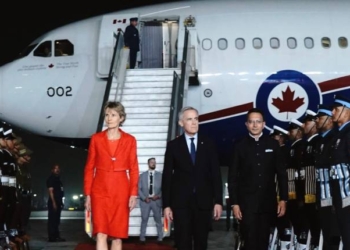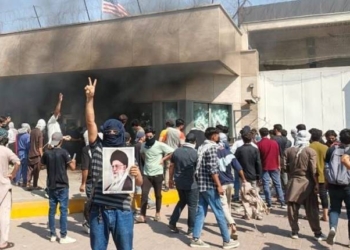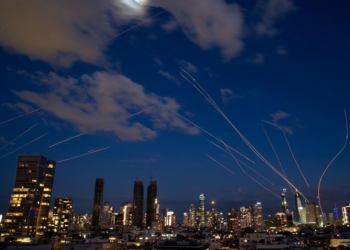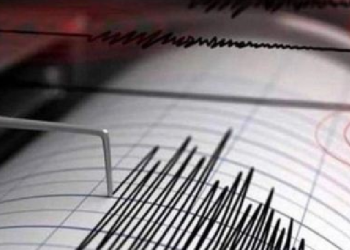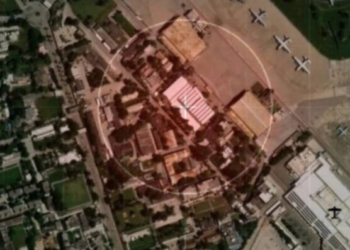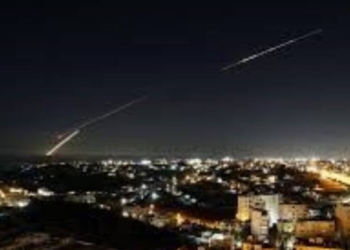New Delhi: It has been over a week since jihadist violence resurfaced in Syria and amid confusion over the exact ground situation and namecalling among the superpowers, the conflict seems to be showing signs of expanding and escalating as various regional powers, especially allies of President Bashar Al Assad, express their willingness to join in.
Iran, which counts Syria as its closest Arab ally, has offered military support, including troops, against terrorists of the Hayat Tahrir al-Shams (HTS), formerly known as Jabhat al-Nusra and said to be affiliated with Al Qaeda. Various Iraqi militias have also expressed readiness to help Damascus deal with the jihadists, who moved out of their “sanctuary” in the northern Idlib province to overrun Allepo city and move on southwards.
Russia, which has had an expeditionary force in the country for nearly a decade now, has already deployed air support against the HTS terrorists.
Meanwhile, in a development of concern, there are reports that militants, led by Kurdish leaders and reportedly backed by the US, are opening up a new front against the Syrian army in the eastern province of Dayr al-Zawr, building up their forces in half a dozen odd villages, east of the Euphrates.
Notably, the US continues to maintain a military deployment in oil-producing areas of eastern Syria, and is accused by the Syrian government of supporting anti-regime forces.
Against this backdrop, an urgent meeting of the UN Security Council, convened to discuss the Syrian issue, descended into an expected spat with the US and the UK blaming Russia and Iran for the current situation as well as the Assad regime, Russia blaming the US and its “allies”, and Iran more directly blaming the US and Israel. China also criticised the West, albeit in a more veiled form.
Though UN Special Envoy for Syria Geir Otto Pedersen said there is no military solution to the current conflict in Syria and warned of a “deepening of the crisis” if there is no de-escalation, the chance of a diplomatic situation seems remote as the Security Council remains deadlocked amid the usual posturing and rhetoric.
The only diplomatic effort was made by Iran, whose Foreign Minister Abbas Araqchi visited Syria and then Turkey, and has spoken of travelling to Russia too. Meanwhile, President Masoud Pezeshkian has talked to his Russian counterpart Vladimir Putin, as well as various Arab leaders.
The focus is on restoring the Astana Process, reached in 2020 after negotiations starting in the Kazakh capital in 2016, and bringing a sort of peace to civil-war-battered Syria after principal stakeholders – the Assad regime, most of its opponents, as well as Russia, Turkey, and Iran hammered out a truce agreement. It is this truce that lies in tatters with the HTS advance.
On the other hand, the role of Turkey is still ambiguous – and it maintains a military presence in Idlib, from where the HTS terrorists have struck out. While President Recep Tayyip Erdogan has underscored that his country supports “Syria’s territorial integrity and national unity”, both he and his Foreign Minister Hakan Fidan, respectively, have maintained the cause of the conflict and a prerequisite for its end was recognising the “legitimate demands” of the Syrian people and opposition.
Nevertheless, the Syrian regime has not assigned any blame to Turkey for the renewed violence.
While a diplomatic resolution to a protracted conflict is a lengthy and painstaking – and by no means assured – process, given the multiplicity of interests involved, the prospects of a military intervention seem quicker and resonate with the targeted audience better.
However, the situation in Syria could easily get complicated if Iranian troops and Iraqi auxiliaries enter a country, beset by Islamist terrorists, and already hosting – willingly and unwillingly – Russian, Turkish, and US military personnel, and above all, bordering Israel. It was the Israeli strike of a diplomatic establishment of Iran in Damascus, and then, the assassination of Hamas leader Ismail Haniyeh in Tehran, that triggered the initial missile strike on Israel by Iran.
Then, trouble-torn Lebanon, where the fragile ceasefire already shows signs of unravelling, is also a neighbour.
A military presence or not, each ally and adversary alike is likely to use the situation to their advantage. While on one side, Iran would like to gain more leverage, Turkey to ensure renewed diplomatic relations with Syria, and Russia to protect its prime Middle East ally, on the other Israel would like to weaken Iran and the Resistance Front, and the US to distract Russia, as it slowly makes gains against Ukraine, and counter Iran.
Hanging over all of this is the continuing carnage in Gaza and the approaching Presidency of Donald Trump. In an already restive region, any misstep could have fraught consequences.
(IANS)





